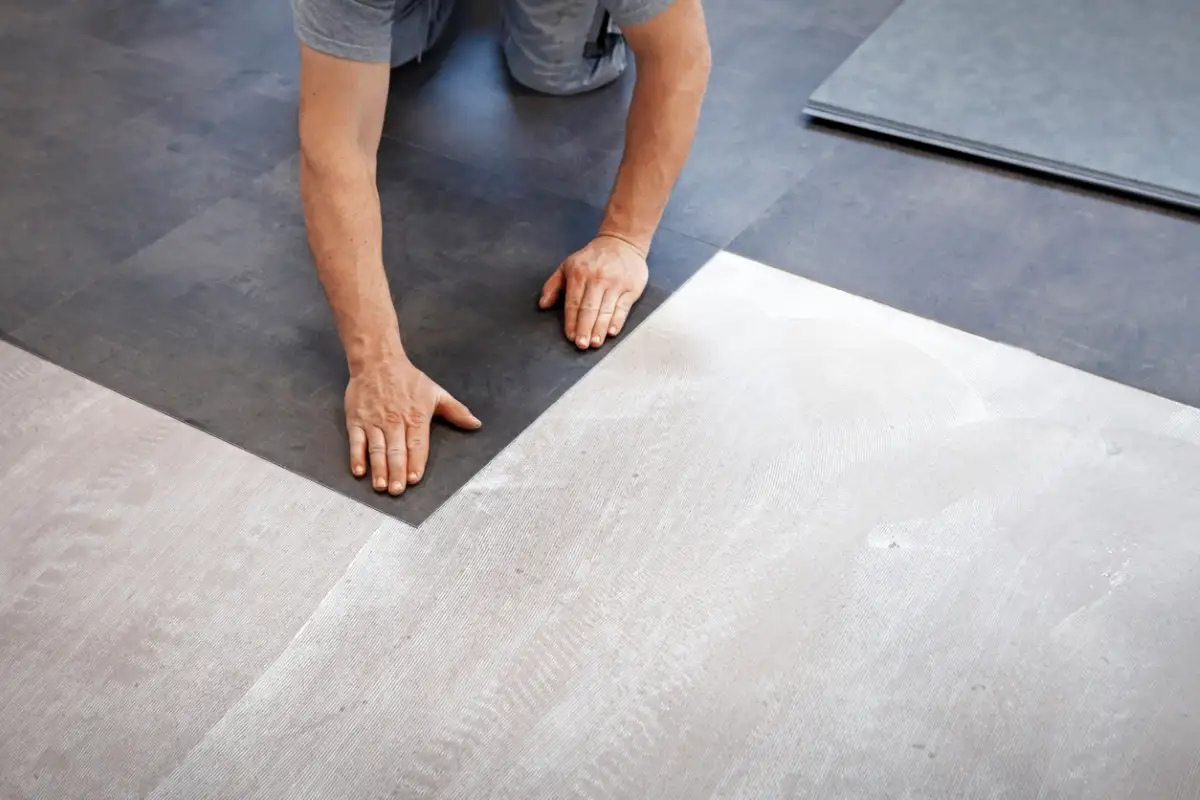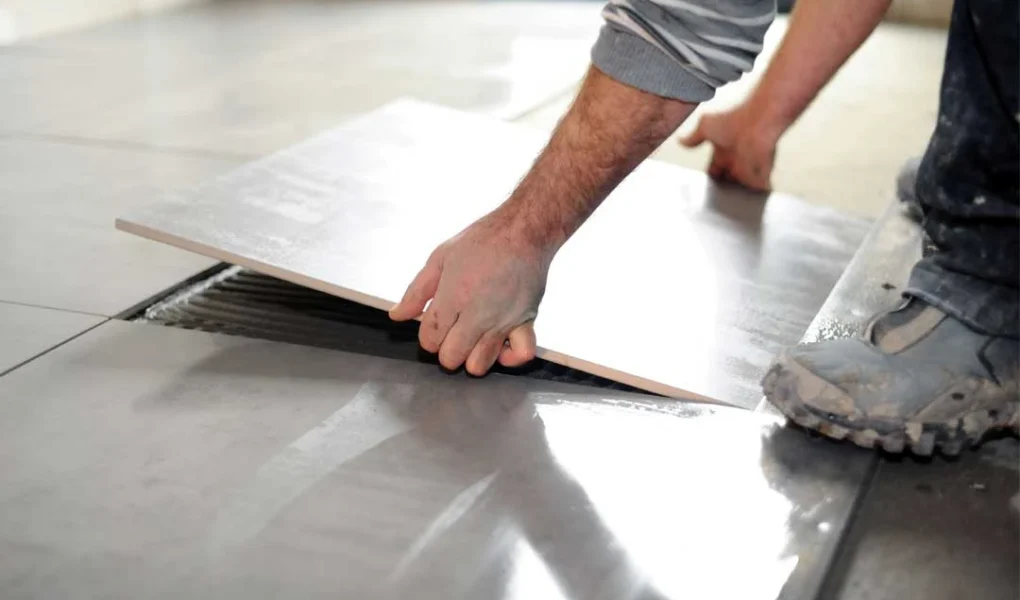Benefits of a cement floor in a basement
When it comes to basement flooring, cement floors have their own set of advantages. Cement is a durable and long-lasting material that can withstand heavy foot traffic and potential moisture in basements. This makes it a reliable choice for areas prone to flooding or high humidity levels.
Cement floors provide a solid foundation for various flooring options, allowing homeowners to choose the best fit for their needs and preferences. The smooth surface of a cement floor also makes installation easier for different flooring materials.
Cement floors are relatively easy to maintain and clean compared to other types of flooring. Proper sealing and finishes allow them to resist stains and spills more effectively.
Types of flooring suitable for cement floors

Several options exist when choosing the best flooring for a basement with a cement floor. One popular choice is carpet or carpet tiles. They can add warmth and comfort to the space while helping with sound insulation.
Vinyl or linoleum flooring is another excellent option for cement floors in basements. These materials are durable, moisture-resistant, and come in various styles and colours to suit your preferences.
Ceramic or porcelain tile is a more upscale choice that can elevate the look of your basement. These tiles are easy to clean and maintain, ideal for high-traffic areas like basements.
Laminate flooring offers the look of hardwood without the cost or maintenance concerns. It’s easy to install and resistant to scratches and stains, making it a practical choice for basement spaces.
Concrete stain or epoxy coating can transform your plain cement floor into a stylish, polished surface. This option adds durability and resistance against moisture, making it perfect for basement areas prone to dampness.
Factors to consider when choosing basement flooring
When choosing flooring for your basement, several essential factors must be considered. One key factor is moisture resistance. Basements can be prone to dampness, damaging certain types of flooring over time. Another consideration is durability. Since basements often see heavy foot traffic and potential water exposure, you’ll want a floor that can withstand wear and tear.
Option 1: Carpet or carpet tiles
The carpet provides warmth and insulation, making the space comfortable for activities like movie nights or playtime with kids. It also helps to reduce noise levels, creating a quieter environment in your basement.
Carpet tiles are a versatile alternative, allowing you to mix and match colours and patterns to create a unique look. They are easy to install and replace if needed, giving you flexibility in design.
Option 2: Vinyl or linoleum
When considering flooring options for your basement, cement floor, vinyl, or linoleum can be significant. These materials are durable, moisture-resistant, and easy to maintain, making them ideal for basements. Vinyl comes in various styles and colours, allowing you to achieve your desired look in your basement space.
Linoleum is eco-friendly and made from natural materials like linseed oil and cork powder. It’s a sustainable option that can add a unique touch to your basement decor. Both vinyl and linoleum are affordable compared to other flooring types, making them budget-friendly solutions for basement renovations.
Vinyl or linoleum installation is typically straightforward, whether you choose sheets, tiles, or planks. Proper installation and maintenance allow these flooring options to last years in your basement without losing appeal.
Option 3: Ceramic or porcelain tile
Ceramic or porcelain tiles are a popular and durable option when choosing flooring for your basement. These tiles are moisture-resistant, making them ideal for basements where dampness can be an issue.
Ceramic and porcelain tiles come in various styles, colours, and patterns, allowing you to customize the look of your basement space. Whether you prefer a sleek modern design or a more traditional aesthetic, there is a tile option to suit your taste.
Installing ceramic or porcelain tiles on a cement basement floor is relatively straightforward. With proper preparation and installation techniques, you can create a smooth and long-lasting flooring surface that will withstand the test of time.
Option 4: Laminate flooring
Laminate is a versatile and cost-effective option that can mimic the look of hardwood or tile. It’s easy to install and maintain, making it a popular choice for many homeowners.
One benefit of laminate flooring is its durability. It resists scratches, dents, and stains, perfect for high-traffic areas like basements. Additionally, laminate is moisture-resistant when properly installed with a moisture barrier underneath.
Another advantage of choosing laminate is the wide range of styles and colours. You can find options that complement any design aesthetic, whether you prefer a modern or traditional look.
When selecting laminate for your basement floor, consider the thickness and quality of the material. It is more durable and provides better sound insulation to use thicker planks.
Option 5: Concrete stain or epoxy coating
Concrete stain offers a variety of colours and finishes, allowing you to customize the look of your basement. It penetrates the concrete surface, creating a unique marbled effect that can’t be replicated with other flooring materials.
On the other hand, the epoxy coating provides a seamless and glossy finish that is resistant to stains, chemicals, and moisture. It’s perfect for high-traffic areas like basements as it can withstand heavy use without showing signs of wear.
Both concrete stain and epoxy coating are cost-effective solutions that can transform your basement into a stylish and functional space. Consider these options if you’re looking for a durable flooring solution with a modern flair.
Other considerations for basement flooring
When selecting the best flooring for a basement cement floor, several factors must be considered. Basement floors can be tricky due to moisture and temperature variations, but you can transform your space into a functional and inviting area with the right choice.
Each type of flooring has its own advantages and disadvantages. Consider your budget, style preferences, and maintenance requirements before deciding. Whether you opt for carpet tiles for added warmth, vinyl for durability, or ceramic tiles for a sleek look, ensure they suit your needs.




